
20 minute read
Marianne Heron
How now we have a new class in Ireland
AS I SEE IT
Advertisement
MARIANNE HERON
At rst when I came to live in the South I used to think that the 26 counties were a classfree society. It didn’t matter where you went to school, how much money you had or what your accent was as long as you were good craic.
Naïve perhaps, maybe I was basing my social observations on the carry-on in pubs where humour was a great leveller. But having lived previously with sectarianism in the Six Counties and in England with its omnipresent class system might explain my innocence. In England accents were a giveaway, dividing working from middle class and these from the upper-class lot: the kind who inherited their furniture and their homes and the aspiring uppers who had to buy both.
In the North which foot you kicked with was the dividing factor and surnames and addresses were a giveaway. Having started life across the water I had the wrong accent for Unionists who may love the Union Jack but don’t love the English.
Coming to live here where I no longer had to worry about other folk’s accents or my own was relaxing. It took time before I got know about the nuanced divisions here. ere’s always a them and us wherever you go. Here distinguishing factors like GAA versus rugby and cricket, the allegiances of pro and anti- Treaty, Dubs v culchies, are fading. But now in the time of Covid I think new variations of them and us have emerged. ere is the us who have obeyed the Covid regulations, going without social contact, celebrations and unable even to stay at the bedsides of departing loved ones and the them who out the rules, often the very them who have set the rules for us. It’s the inherent unfairness and the whi of privilege which raise hackles and in ame opinion. It has given rise to a kind of Valley of the Squinting Windows where we judge rule breakers in the court of public opinion: be they broadcasters together for a maskless photograph, civil servants momentarily sharing a glass of zzy wine or soldiers at an outdoor barbeque.
is month another them and us has been spotlighted courtesy of Judge Mary Fahy when she dismissed the charges against the organisers and hoteliers involved in Golfgate on the grounds that there was no evidence for the charges. Judge Fahy then commented on the fallout from Golfgate which cost some top people their jobs. About those attending, she said: “ ey were all responsible people who would not have gone to a dinner unless they felt comfortable and unless the organisers had not put in place all that was required to make it safe.”
And there we have it there is a class of person — Judge Fahy among them — lawyers, judges, politicians, broadcasters, EU Commissioners and the like who form an elite group of ‘responsible people’.
Funny that, thinking back over past scandals and known misdeeds I am not so sure that those high o ce are always shining examples of probity. And where does that leave the rest of us normal people?
Maybe there should be a another class for irresponsible folk like myself. ----------------------------------Is anyone else suffering from PCSD (Post Covid Stress Disorder) Although restrictions have been lifted I am finding it quite hard to return to the world after over two years of isolation. And I am not alone? I notice for instance that around 70 men’s sheds — the very places to prevent isolation — are in danger of not reopening. It’s time to start emerging from that isolation, wearing our masks of course and using our cop on.
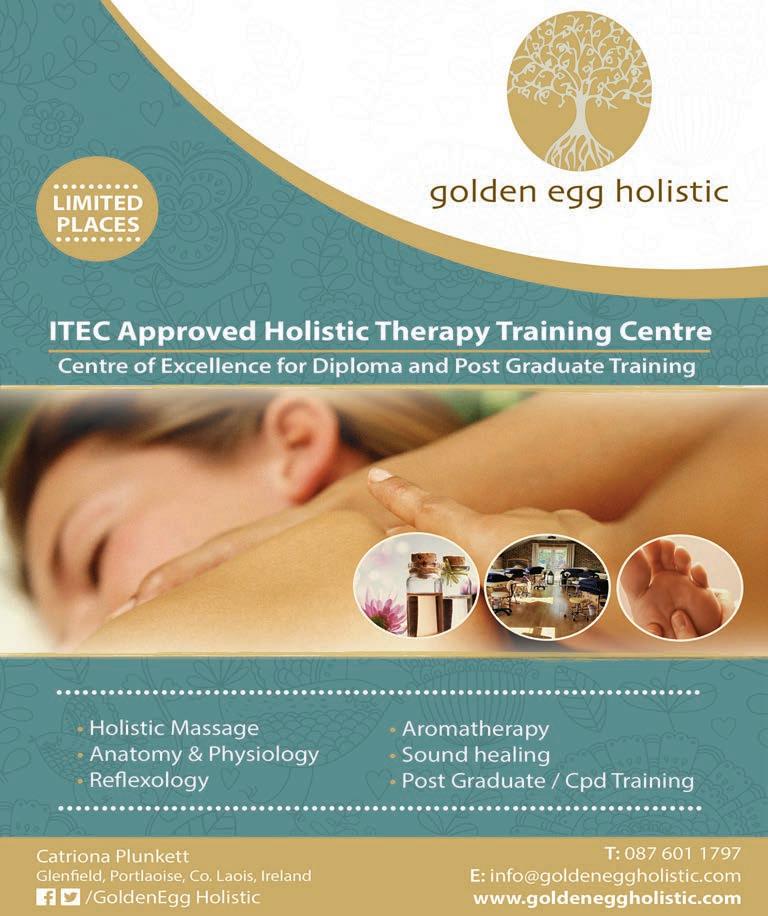
Are you recovering after Illness?
CLAIR WHITTY
ARE you recovering from viral illness? Exhaustion, respiratory problems, aches and pains, cognitive function, and lowered immunity are symptoms of long Covid19. I have a couple of articles recently about tiredness so I won’t address that here.
To support immunity the main supplements I think of are vitamin D, C, Zinc, and Echinacea. One Nutrition Revive and Go Immunity is a new one to us at the shop. It contains highly absorbable forms of vitamin C and Zinc in one formula. I like it because the vitamin C is made from a patented formula called Pureway C which is bound to a plant-based fat. This helps the vitamin C to get to the cells where it’s needed without being destroyed. It’s also retained in the cells for longer than other forms of vitamin C. It’s shown in clinical studies to be 223% more absorbable than ascorbic acid. Zinc Citrate is the ideal form to support the immune system. It comes in a one a day capsule and is gentle on the stomach.
I would stay on vitamin D, if you have been on it for the past two years it might be good to take a small break or at least make sure that you take Magnesium too. One of our favourite supplements is Better You Vitamin D3 Oral Spray. It’s easy to use, you simply spray onto the inside of your cheek where it will go straight to your blood stream.
If you have a lingering cough, you could consider Irish Botanica Botanical Syrup a syrup that we get great results with. It contains mullein, a herb many of you are looking for as well as plantain, white horehound, and vitamin C. Mullein may be helpful for congestion and chesty coughs.
NAC is something everyone is talking about, Davina Dowling Nutritional Therapist explains why; “Traditionally, NAC known for its role in the detoxification system in the body. It is a special amino acid that dramatically increases glutathione which is needed to support the liver in helping to remove toxins. In terms of its use for Covid 19 purposes, NAC is a powerful antioxidant which reduces inflammatory proteins released due to the virus as well as promoting healthy lung tissue and thinning mucus. It is recommended to take 500mg twice a day.” Magnesium is a good option for aching muscles, either in supplement form, or external products like BetterYou Magnesium Spray that can be sprayed onto the skin. Magnesium is supportive for energy and lung health too. This will combine well with the Oral Better You Vitamin D spray.
One Nutrition CoQ10, B vitamins, Omega oils, and healthy gut bacteria may help sluggish cognitive function.
Everyone is different, please feel free to ring me or call the shop for more information.


Natural Health Store, Market Cross Shopping Centre, Kilkenny Phone: 056 7764538 Email: info@ naturalhealthstore.ie Shop online: www. naturalhealthstore.ie
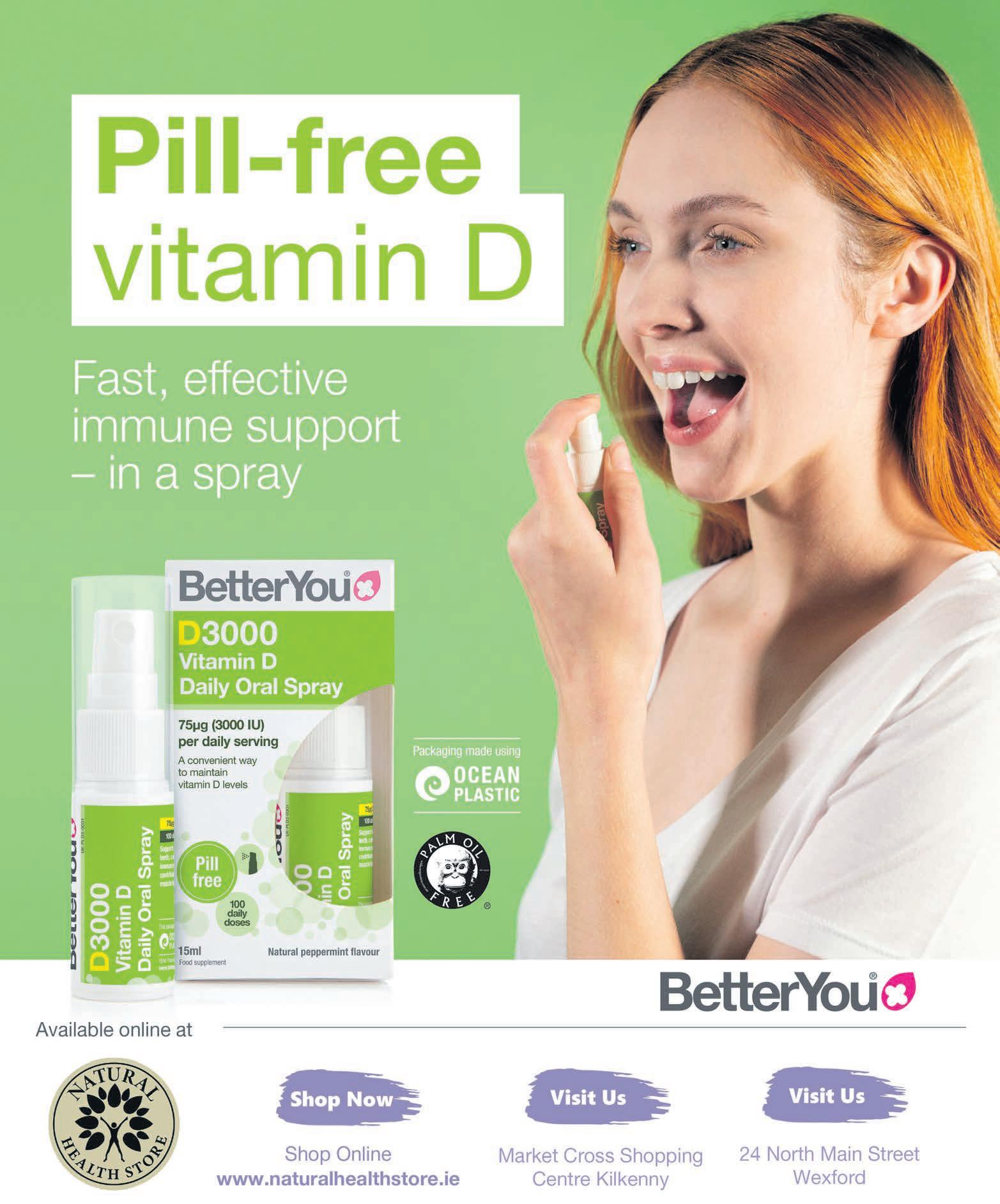
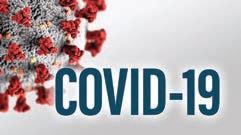

AS of February 17 last, there have now 421,623,431 documented cases of Covid-19, with 5,894221 con rmed deaths.
If you haven’t been diagnosed with Covid-19 by now, it might feel like you’re one of the lucky few. Or maybe, just maybe, you already had Covid and didn’t realise it because your symptoms were so mild. ( is might have made any Covid-19 booster side e ects worth it!)
If you have felt a little ‘o ’ in recent months but didn’t know quite what was going on, here are 14 silent signs that you may have been infected with Covid-19 — and what you can do about it now.

1.You’ve got natural antibodies
Speci cally, antibodies to nucleocapsid protein only appear if you have recovered from Covid-19, while vaccines and natural infection produce an antibody to spike proteins. If you are positive for antibodies to the spike protein and negative for antibodies to nucleocapsid protein, you have been vaccinated, but not exposed. If you are positive for both, you have had Covid-19 and you may or may not have been vaccinated. ere is still a lot research is discovering more about antibodies, including how long they last and what level is considered most protective or for how long.
2. You were a little run down a while back
Unlike earlier variants, Omicron symptoms tend to be mild in people who are fully vaccinated. Some people may not have had any noticeable symptoms. If you didn’t feel sick enough to consider getting tested, you could have had Covid-19 and recovered without an o cial diagnosis.
3. Your fever and cough weren’t the u
You had a fever for days, a hacking cough, and were exhausted. It could have been Covid-19, what with that u season and the Covid-19 pandemic overlapping. is year, doctors are seeing cases of urona. ere is so much overlap with colds or u and coronavirus symptoms, which is why testing for Covid-19 has been so emphasised.
4. You lost your sense of smell or taste
You’ve heard this: loss of sense of smell or taste is a hallmark of Covid-19 infection with earlier variants. What you may not know is that these symptoms are not a slam dunk by any stretch. Many will develop loss of smell from Covid-19, a new study predicts. e ndings appear in the journals JAMA Otolaryngology–Head & Neck Surgery.
5. Your hair is falling out in clumps
If you’re noticing hair loss, it could be due to a past infection with Covid-19. is phenomenon is known as telogen e uvium and occurs when physical or psychological stress causes hair roots to be pushed into a resting state prematurely. e good news is that your hair will likely come back as hair follicles aren’t permanently damaged with telogen e uvium as shedding can continue up to six months, and full recovery can take up to 18 months because hair grows back so slowly.
6. You’ve got hives
Post-Covid-19 hives are a phenomenon health professional have observed. Also, viral exanthems, which is a skin rash that is often related to a viral infection after Covid-19. ese seem to be more common in children than adults and can even occur if you didn’t have any noticeable Covid symptoms. ese hives and rashes usually resolve on their own with judicious use of moisturiser or topical steroids, if the itch is particularly bothersome.

12 signs you may already have had Covid-19
7. Your loved ones were infected
If Covid-19 passed through your house taking no prisoners except you, it’s possible you were infected and didn’t realise it. Many people who are infected with this virus have mild or no symptoms, and Omicron reportedly produces even milder symptoms than other variants— especially among people who are vaccinated or boosted. You just didn’t test at the right time.
Home antigen tests aren’t that sensitive either, so you may have received a false negative.
8. Your toes were a mess
Covid toes are marked by purple or red, itchy wounds. Skin manifestations, particularly of the toes, could be something that makes people who weren’t tested look back and say: “Was that Covid-19?”
However, toes with this appearance aren’t a sure sign of Covid-19, as there could be other causes. If you are concerned, talk to your doctor.
9. Your stomach was acting up
Covid-19 is a respiratory illness, but not everyone coughs or gets short of breath. For some, diarrhea may be the rst and only sign of infection.
If you have digestive symptoms such as diarrhea, nausea, or vomiting and were in contact with individuals infected with Covid-19, you should have a higher index of suspicion.
10. You woke up with pink eye
Pink eye infection, or conjunctivitis, may be a sign of coronavirus, but this is very rare, according to the American Academy of Ophthalmology. If you develop pink eye, don’t panic. Call your ophthalmologist to let them know and follow their instructions for care.
11.You’ve got dry mouth
Is your dry mouth a symptom of Covid-19?
Maybe. As many as 40% of people with Covid-19 may experience symptoms of dry mouth during or after the illness, according to a study in the Journal of Dental Research. And now research in the journal Nature Medicine provides clues as to how Covid-19 a ects the mouth and saliva. British researchers from Wellcome Sanger Institute in Cambridge, and other organisations in the US and UK identi ed the angiotensin-converting enzyme 2 receptor, or ACE2 receptor, in cells of the salivary glands and tissues lining the mouth. is is the protein that SARS-CoV-2 locks into for entry into the body. ey also found that the virus can multiply in the cells of your salivary glands.
12. Everything smells nasty
Some people recovering from Covid-19 report that they constantly smell smoke, garbage, or even skunk-like odours that aren’t really there. ese phantom smells tend to become more common over time, with latest gures suggesting that about 25% of people experienced these otherwise unexplainable smells soon after diagnosis.
Booster shots wane after four months, says new study
BOOSTER shots of the P zer-BioNTech and Moderna vaccines lose substantial e ectiveness after about four months, according to a study published by the US Centres for Disease Control and Prevention (CDC).
According to a report in the Washington Post, researchers found the booster shots remained highly e ective against moderate and severe covid-19 for about two months after a third dose.
But their e ectiveness declined substantially after four months, suggesting the need for additional boosters, the study said. e vaccine was 91% e ective in preventing a vaccinated person from being hospitalised during the two months after a booster shot, the study found, which helped keep vaccinated populations out of hospital during the Omicron surge. But after four months, protection fell to 78%.
Protection faded more in preventing trips to emergency departments, falling from 87% in the rst two months to 66% after four months.
After more than ve months, vaccine e ectiveness fell to roughly 31%, but researchers noted that estimate was imprecise because little data were available for that group.
Waning protection after a third jab reinforces the importance of considering additional doses to sustain or improve protection against Covid-19-associated visits to emergency departments and urgent care and hospitalisations, the study said. e CDC said the study shows that a third dose of mRNA vaccine continues to o er high levels of protection against severe disease.
“Boosters are safe and e ective, and CDC continues to recommend everyone ve and older remain up to date,” said the CDC.
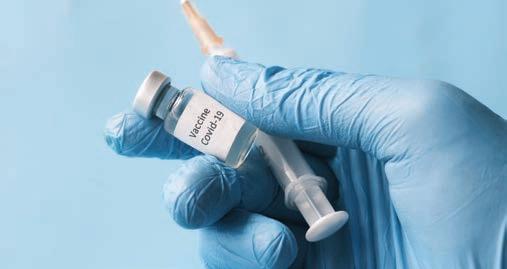
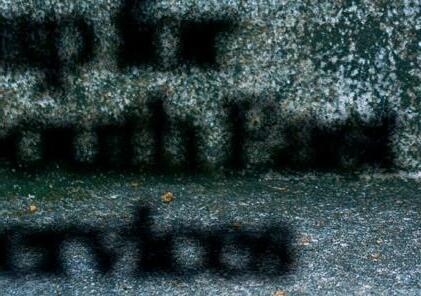
A NUMBER of child and adolescent mental health services (CAMHS) in the South East area have come in for sharp criticism for a lack of engagement with troubled children in care, according to a new report on childcare law proceedings.
In one recent case, a CAMHS team failed to complete an assessment of a child for two years despite directions to do so from a judge, according to news sources.
In a separate case, a court heard a “deeply troubled” teenager was deemed not to be of su ciently high priority to be placed on a CAMHS waiting list, even though she was self-harming. e lapses are outlined in a new report by the Child Law Project, which reports on cases involving orders under the Child Care Act.
Under the act, children can be placed in the care of Tusla, the child and family agency, where there is a serious risk to their health or welfare.
Quite often a multi-agency response is required to help such children. is can frequently involve the help of HSE CAMHS teams, of which there are 72 nationwide. e criticisms outlined in the Child Law Project report come at a time when the spotlight is very much on the operation and resourcing of CAMHS services.
A review of cases in South Kerry published last month found shocking de ciencies, with hundreds of children having received risky care and proof of signi cant harm to 46 service users. e review highlighted the over-medication of children without proper diagnosis and major failings in supervision and governance.
Inspector of mental health services Dr Susan Finnerty is to conduct an independent review of the provision of CAMHS services in the wake of the South Kerry ndings.
Child Law Project chief executive Dr Maria Corbett said its latest report detailed how some CAMHS and HSE disability services were sharply criticised in the courts for the way they responded to referrals and requests to assess and help children in care.
“Despite acknowledgement of the need for interagency cooperation, cases involving child protection, mental health and disability continue to result in situations where children slip through the cracks,” she said.
In one recent case, a district court in a rural town granted a full-care order for a 15-yearold boy. e teenager, who was diagnosed 10 years earlier with attention de cit hyperactivity disorder, was detained following assaults on and threats to care sta , and damage to property in a residential unit. e court heard that since he had come into care two years earlier, and despite directions from the judge and the e orts of Tusla, CAMHS had so far failed to complete an assessment of him. is had hindered the work of professionals dealing with the boy and Tusla had been unable to source a cognitive assessor or a tutor for him. e case also highlighted a lack of residential care placement for troubled children.
In another case, a judge in an unnamed court directed the immediate assessment of a deeply troubled child who had been deemed by CAMHS not to be of su ciently high priority to be placed on their waiting list. e girl had experienced a “chaotic, unpredictable home life” and was self-harming, depressed and deeply a ected by trauma in her earlier childhood as a result of domestic violence, neglect and abandonment. e court heard CAMHS had suggested another service called Jigsaw.
In a statement seen by e Kilkenny Observer, Tusla notes the publication of the HIQA inspection report for Child Protection and Welfare Services and Foster Care Services in the Dublin South West/Kildare/ West Wicklow Area. is was a risk-based inspection to assess progress made following a previous inspection in December 2020. At that time, despite e orts to recruit social workers, vacancy levels were impacting on compliance with national standards.
In this most recent inspection, eight standards were assessed, of which two standards were found to be substantially compliant, ve standards were found to be moderately noncompliant, and one standard was found to be non-compliant major. e key issues that were followed up in this inspection related to the e ectiveness of the leadership, governance and management of the service, adherence to national policies and standards, monitoring of services, and the timeliness of child protection and welfare services for children and families. Overall, the inspection found that signi cant progress has been achieved in many of these areas and that further actions are progressing to address areas that remain challenging.
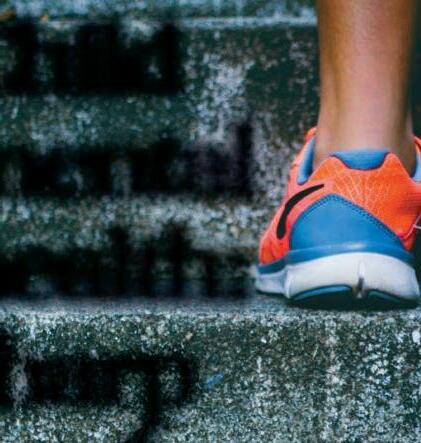
Child mental health: sharp rap for South East services
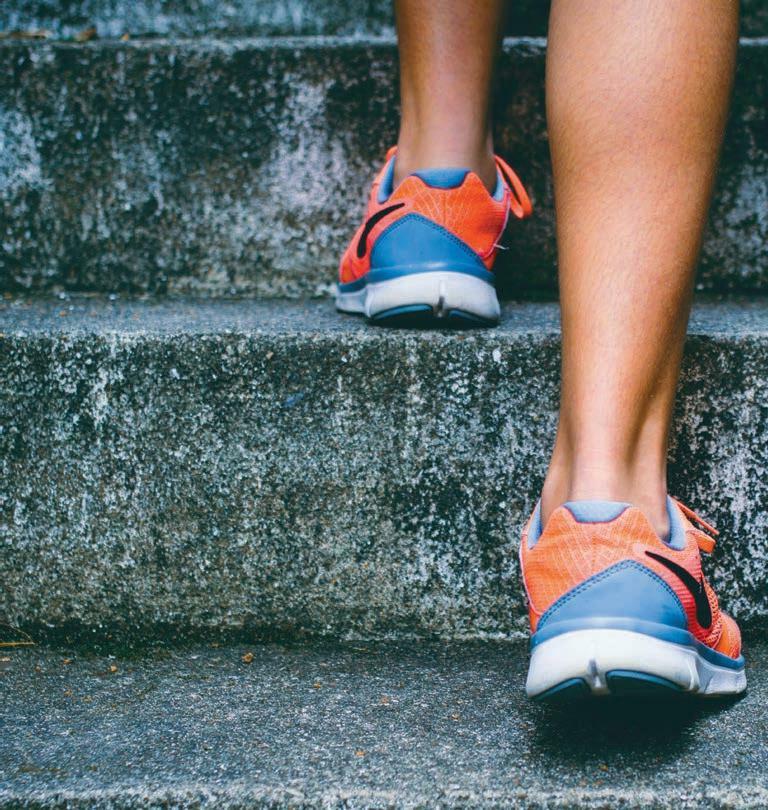
Comment, Page 8
Benefits of changes to Fair Deal Scheme to Kilkenny farms
IFAC, Ireland’s farming, food and agribusiness specialist professional services rm, is advising Kilkenny familyowned farms and businesses to be aware of a recent bene cial change to the Fair Deal Scheme.
What is changing?
Under the Nursing Home Support Scheme (commonly known as the Fair Deal Scheme), State assistance is available to supplement the cost of nursing home care for eligible individuals. e individual pays a weekly contribution towards the cost of their care and the State covers any shortfall that may be due to the nursing home. e support available under the scheme is means-tested. In assessing an individual’s means, the capital value of their principal private residence is only included for the rst three years of their time in care. However, until recently, productive assets such as farms and businesses did not qualify for this socalled ‘thee year cap’ unless the farmer or business owner had su ered a sudden illness or disability that required nursing home care.
Now an amendment to the Fair Deal Scheme legislation, e ective from October 2021, means that after three years when calculating the cost of a person’s nursing home care, the value of familyowned farms and businesses will no longer be taken into account. is is subject to satisfying certain conditions:
• You must apply to the HSE to appoint a family successor who will commit to running your farm or business for at least six years. • Your farm or business must have been actively run by you, your partner or your proposed family successor for at least three out of the last ve years. • e successor must be 18 years of age or older and must be either your partner, your relative or a relative of your partner.
Applications to have the farm or business included in the three-year cap must be made using the HSE Fair Deal application form. If an individual has been in care for two years and a successor is identi ed in Year 3, the previous two years in care will be taken into account.
Selling the family home
In another change to the Fair Deal Scheme, the threeyear cap now also applies to proceeds from the sale of an individual’s principal primary residence. is means that where a nursing home resident’s family home is sold, the proceeds are not be included in the nancial assessment for the scheme once three years have passed. carried out to work out what the individual’s contribution to their nursing home care will be. Note that the nancial assessment takes into account any assets that an individual has gifted away in the ve years before applying for the Fair Deal Scheme.
Where an individual’s assessed weekly contribution is greater than the cost of care they do not qualify for nancial support. erefore applicants to the Fair Deal Scheme with substantial assets or incomes are unlikely to qualify for nancial support.
Individuals who qualify for the Fair Deal Scheme contribute 80% of their assessable income annually, plus a maximum of 7.5% of the value of their assets, investments and savings which is now capped at three years. e rst €36,000 of an individual’s assets or €72,000 in the case of a couple is not counted in the nancial assessment.
Where one individual from a couple avails of the scheme, their contribution is 40% of the assessable income and 3.75% of assets. e State contributes the balance. assessment and a nancial assessment. Depending on the outcome of these assessments, there are then two types of support:
State support is where the HSE pays any balance due to the nursing home care provider after your weekly contribution to the cost of your care. If you own assets, you can choose to apply for a Nursing Home Loan which will allow your weekly contribution to be collected from your estate after your death. When applying for this loan, you must provide written consent to having a charging order registered against your asset.
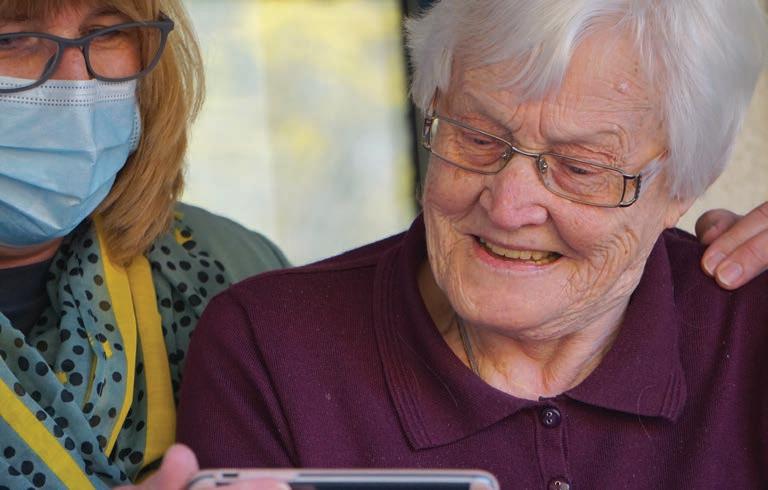
Tax relief
You can claim Income Tax relief on your weekly contribution towards nursing home expenses even if you are supported by the Fair Deal Scheme. is means that the portion of your income that is taxable at your highest rate of tax is reduced. Individuals aged over 65 are exempt from Income Tax on the rst €18,000 of income (single/widowed) or €36,000 (married/civil partnership). If you are in doubt about whether you are eligible for the Fair Deal Scheme, or have questions about the recent changes, contact your local ifac o ce for assistance.

